Business
Innovative Solutions Like This Plan To Provide Power For Data Centres Will Drive Natural Gas Demand For Decades


From the Daily Caller News Foundation
By David Blackmon
The dramatic expansion of the number and scale of planned datacenter projects across the United States has generated a great deal of news over the last year. The central question in many of those stories centers around the power needs of these projects, and how the power will be generated.
Early developers hyped their preference to use electricity generated by wind and/or solar to power their projects but found the 99.999% datacenter uptime requirements can’t be met by these intermittent power sources, even when backed up by stationary batteries.
With new nuclear projects facing permitting times of 10-15 years and coal being crowded out by emissions regulations, more recent speculation has centered heavily on natural gas as being the fuel of choice for developers whose projects won’t be interconnected into a regional power grid. Natural gas generation is cheaper and faster to build than nuclear, and, while anti-fossil fuel activists complain that gas still comes with emissions, it presents a far cleaner alternative to coal.
In Wyoming, a group of three companies said this week they’ve agreed to a joint project that also satisfies the emissions critics. In a release dated May 6, data center developer Prometheus Hyperscale, Wyoming’s largest gas producer PureWest Energy, and carbon capture and storage (CCS) developer Frontier Carbon Solutions, LLC, rolled out what they call “a first-of-its-kind partnership focused on driving innovation and sustainability while contributing to Wyoming’s long-term economic growth.”
In simple terms, the plan goes like this:
- Prometheus will permit and build the datacenter;
- PureWest will produce and supply the natural gas to a nearby power plant operated by an independent power provider from its Wyoming production portfolio, which it boasts maintains “industry leading emissions performance with a rigorous Measurement, Monitoring, Reporting and Verification (MMRV) program and ISO 14067 verification;”
- Frontier will capture biogenic carbon dioxide from across the Mountain West and sequester it in underground formations in Southwestern Wyoming; and
- Frontier will sell traceable carbon removal credits to Prometheus.
Through entering into these various agreements, a datacenter sporting a net-zero emissions profile is created. This not only embellishes the clean energy scorecards for the three companies involved in the partnership, but also for customers who purchase the computing power from the datacenter, as well as the operators of processing plants and transportation systems which move both the natural gas and the carbon dioxide.
“PureWest’s goal to be the region’s energy supplier of choice is rooted in innovation and cutting-edge technology, and today’s exciting announcement reflects our ongoing mission and progress,” said Ty Harrison, President and CFO of PureWest said in a release. “We’re proud to partner with Prometheus and Frontier because this project affirms the critical role that verified low-carbon natural gas will play in sustainably meeting the growing energy needs of AI and its related infrastructure. PureWest is committed to ensuring Wyoming continues to be a leader in delivering scalable energy and decarbonization solutions for the data-driven future of the United States.”
While the joint venture is fairly complex with a number of moving parts, it actually represents a pretty ingenious solution. Once up and running, the partners end up creating a major datacenter with the same carbon footprint as one powered by wind or solar would have, but which will enjoy the added benefit of being able to meet its 99.999% uptime requirements.
But it’s more than that. As the Trump administration’s energy and climate regulatory agenda moves ahead to consolidation, these companies will also avoid running into the reality of so many U.S. wind and solar projects becoming financially unsustainable when the endless stream of rising subsidies their business models require are inevitably reduced or cut off entirely.
As the religious global fervor driven by climate alarmism continues its inevitable fade, producers of American natural gas like PureWest will find themselves presented with a wide array of innovative opportunities like this one. Those opportunities will be driven by customers and potential partners who need the combination of abundance, affordability, reliability, speed of development and low emissions profile that only natural gas is capable of providing.
Anyone who still believes that oil and gas is a dying industry is in for a very rude awakening.
David Blackmon is an energy writer and consultant based in Texas. He spent 40 years in the oil and gas business, where he specialized in public policy and communications.
Business
Attrition doesn’t go far enough, taxpayers need real cuts

The Canadian Taxpayers Federation is calling on Prime Minister Mark Carney to actively shrink the bureaucracy rather than relying on attrition.
“After adding about 100,000 bureaucrats in a decade, attrition doesn’t go nearly far enough,” said Franco Terrazzano, CTF Federal Director. “Carney needs to get serious about fixing the budget and making government more affordable for taxpayers.
“Carney needs to significantly shrink the bureaucracy immediately.”
Carney recently stated that any reduction of the size of the federal bureaucracy will “happen naturally through attrition.”
The federal bureaucracy cost taxpayers $71.1 billion in 2024-25, according to the Parliamentary Budget Officer. The bureaucracy cost taxpayers $40.2 billion in 2016-17. That means the cost of the federal bureaucracy increased 77 per cent since 2016.
The federal government added 99,000 bureaucrats since 2016.
Carney said he would “balance the operating budget by Budget 2028” during the election. The bureaucracy consumes about 55 per cent of the operating budget.
“Canadians pay too much for an expensive bureaucracy that underdelivers,” Terrazzano said. “Carney needs to get serious about fixing the budget, making government more affordable and shrinking the federal bureaucracy.”
Half of Canadians say federal services have gotten worse since 2016, according to a recent Leger poll commissioned by the CTF. That’s despite the cost of the federal bureaucracy growing 77 per cent. The poll also found that 54 per cent of Canadians want the government to cut the size and cost of the federal bureaucracy.
Business
Carney’s Ethics Test: Opposition MP’s To Challenge Prime Minister’s Financial Ties to China

Brookfield’s 2017 purchase of Teekay Offshore tied it to a corporate family whose LNG arm partnered with China’s COSCO to ship Russian Arctic gas under the shadow of Crimea-era sanctions.
In 2017, Brookfield, the investment giant that would later launch Prime Minister Mark Carney’s global business and political reach, bought control of Teekay Offshore Partners — a shipping deal that now casts a long geopolitical shadow.
On the surface, it looked like just another Brookfield deal. But behind it lies a complicated backstory, one that deepens concerns about the global-security risks lurking beneath Carney’s sprawling portfolio of more than 550 corporate holdings.
Teekay Offshore was part of the wider Teekay corporate family, which also included Teekay LNG Partners. That LNG arm entered a major joint venture with China LNG Shipping (CLNG), a subsidiary of COSCO, the Chinese state-owned shipping giant. Together, they financed and operated six ice-breaking carriers built to transport Russian natural gas from the Arctic Yamal LNG project.

The timing could hardly have been more sensitive. The Teekay-COSCO venture was launched in 2014 — the same year Russia seized Crimea and the West hit Moscow with sanctions. Five years later, in 2019, the U.S. government sanctioned a COSCO affiliate for carrying Iranian oil, which briefly caused Teekay’s joint venture with COSCO’s China LNG Shipping on the Arctic Yamal project to be treated as a “Blocked Person” under American rules.
The sanction was lifted after COSCO restructured its ownership.
Brookfield never owned Teekay LNG; its stake was in the Teekay Offshore arm, a separate division of the Teekay corporate family. But the two companies shared the Teekay brand, and as long as Brookfield remained tied to that structure, it was positioned uncomfortably close to a Sino-Russian natural gas venture that Washington had already flagged as risky.
COSCO – or China Ocean Shipping Company, a state-owned maritime giant – is a story in itself.
It has repeatedly faced U.S. scrutiny over its potential role in illicit and sensitive activities. In 1996, U.S. Customs agents seized 2,000 disassembled Chinese assault rifles hidden in containers on a COSCO ship at the Port of Oakland, allegedly bound for Mexican drug cartels. While official blame fell on Poly Technologies Inc. — a Chinese arms exporter — and the smuggling network behind the shipment, the incident heightened concerns about COSCO’s links to Beijing’s military and underground proliferation networks.
Other troubling episodes include a 1993 incident involving a COSCO vessel suspected of carrying chemical-weapons precursors to Iran, a 2015 seizure of explosives on a COSCO ship in Colombia headed for Cuba, and the 2019 U.S. sanctions on COSCO subsidiaries for violating Iran oil embargoes.
The Bureau has also reported on Canadian concerns. In December 1999, former Crown prosecutor Scott Newark wrote to an Ottawa intelligence review panel, noting that Canadian intelligence officials had long scrutinized COSCO’s activities at Vancouver’s port, citing alleged ties to both Chinese Triads and the People’s Liberation Army.
As Carney steps back into Parliament today, he is likely to face scathing questions from the Opposition not only about his Brookfield holdings and potential conflicts tied to deals like Teekay, but also over his government’s billion-dollar loan to BC Ferries for vessels built at a Chinese state-owned shipyard linked to Beijing’s civil-military fusion strategy.
This is where Carney himself enters the Brookfield story. After stepping down from the Bank of England in 2020, he joined Brookfield as Vice Chair and Head of ESG and Impact Investing. He later became Chair of Brookfield Asset Management. That means while Brookfield was still closely tied to Teekay Offshore, Carney was one of the most senior figures shaping Brookfield’s strategy — and holding significant personal stakes in its success.
Today, Brookfield has no exposure through Teekay. Teekay Offshore has since been renamed Altera Infrastructure and separated from its parent. In other words: while Brookfield has avoided direct legal risk, the reputational and geopolitical iceberg remains just beneath the waterline. Fresh controversy now looms in the case of the BC Ferries deal, in which the federal government, through the Canada Infrastructure Bank, which is overseen by Housing Minister and former Vancouver mayor Gregor Robertson, has provided a $1 billion low-interest loan to help BC Ferries purchase four hybrid vessels built by CMI Weihai, a Chinese state-owned shipyard. Opposition MPs say the loan contradicts Carney’s “Buy Canada” rhetoric and risks strengthening a PRC enterprise under civil-military fusion policy, at a moment when Beijing is openly threatening to invade Taiwan — with vessels constructed by state-owned shipbuilders such as CMI Weihai potentially part of that buildup.
As The Bureau has reported, an Ottawa democracy watchdog has already warned that Prime Minister Carney’s sprawling private investments — including substantial holdings in Brookfield as well as shares in more than 550 other companies — create a disabling conflict of interest that cannot be solved by his so-called “ethics screen,” ultimately undermining Ottawa’s credibility and weakening Carney’s capacity to confront hostile regimes, including China.
“PM Carney’s so-called ‘blind’ trust isn’t blind at all,” Democracy Watch stated this summer. “He knows exactly what he put in, he chose his own trustee, can instruct them not to sell, and can receive updates at any time. On top of that, he owns stock options in Brookfield that he can’t sell for years, guaranteeing he stays tethered to these corporate interests.”
These warnings echo The Bureau’s March 2025 pre-election investigation, which outlined in granular detail Carney’s deep entanglements with Brookfield and China. The Bureau revealed that Brookfield, the $900 billion investment giant Carney joined in 2020, held over $3 billion in politically sensitive assets connected to Chinese state-linked real estate and energy conglomerates, as well as a significant offshore banking footprint. One of its headline deals — a $750 million stake in a Shanghai commercial property project dating back to 2013 — was tied to a Hong Kong tycoon with official links to the Chinese People’s Political Consultative Conference, a central “united front” body identified by the CIA as a tool of Beijing’s overseas influence operations.
-
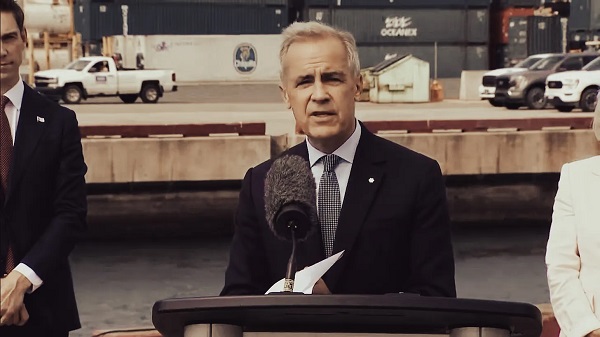
 Business1 day ago
Business1 day agoMark Carney’s Climate Competitiveness Pitch Falls Flat
-
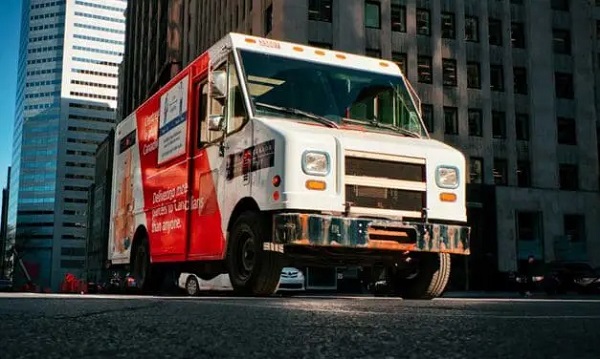
 Business1 day ago
Business1 day agoCanada Post is broken beyond repair
-

 Business1 day ago
Business1 day agoHealth-care costs for typical Canadian family will reach over $19,000 this year
-
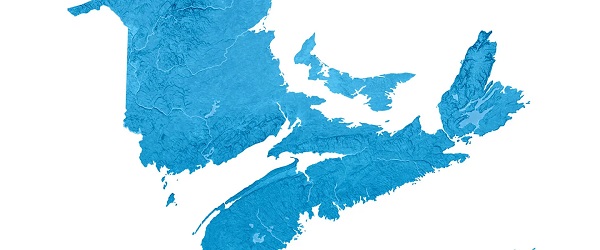
 Alberta1 day ago
Alberta1 day agoMaritime provinces can enact policies to reduce reliance on Alberta… ehem.. Ottawa
-
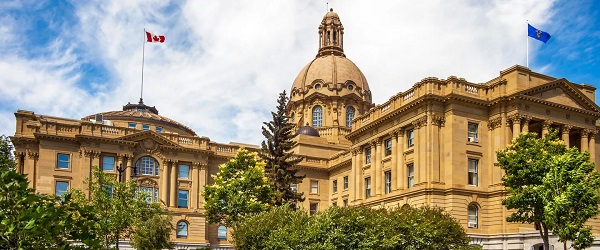
 Alberta1 day ago
Alberta1 day agoYes Alberta has a spending problem. But it has solutions too
-

 Business1 day ago
Business1 day agoCanada can’t allow so many people to say ‘no’ to energy projects
-
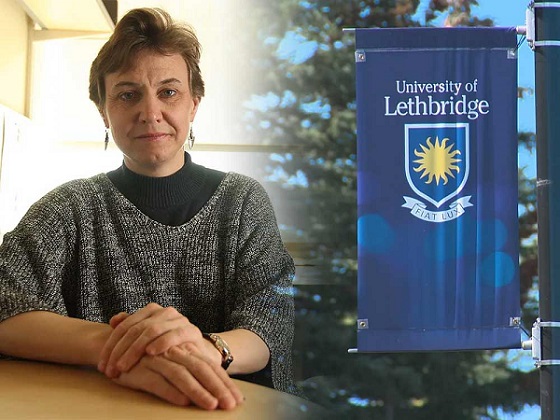
 Censorship Industrial Complex1 day ago
Censorship Industrial Complex1 day agoDecision expected soon in case that challenges Alberta’s “safe spaces” law
-
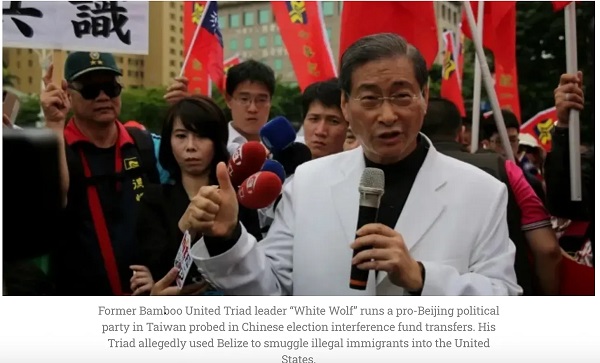
 espionage2 days ago
espionage2 days agoInside Xi’s Fifth Column: How Beijing Uses Gangsters to Wage Political Warfare in Taiwan — and the West









